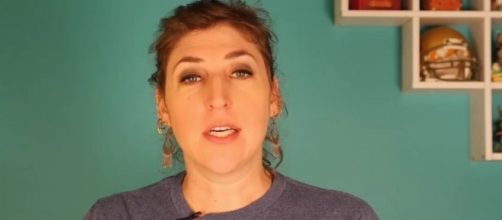Mayim Bialik, who many know as Amy from "The Big Bang Theory," has been causing quite the stir on social media recently. On March 23 via her personal blog, Bialik posted a video titled, "Girl vs Woman: Why language matters" about men referring to women as "girls." She had a strong opinion about what this is stating and exactly what it is doing to society.
'It implies they are inferior to men!'
Bialik states that she was at a bar and overheard some men talking about a girl at the bar. She then says she began looking around thinking, "who would let a child into a bar?" She then goes on to push the point across that when we use words that generally describe children, it changes the view the world has of women.
This may not be a conscious decision but it lowers our opinions of women nonetheless. When we talk about women as if they are children "it implies they are inferior to men."
'We start to believe the way things are, is the way they have to be'
Bialik talks about how, in the male-centric society we live, the idea that the way things are is the way they have to be, and that there are no other options. The television star then goes on to say that Men And Women alike need to be conscious about the language we use to describe others because it is important. The words we use to describe people label them into the order of power that society deems fit. The star stated, "This kind of thinking has persisted far longer than it should have, and we know better now."
So what can be done to stop this way of thinking?
It is up to everyone, men and women alike, to change the way people are seen and the words used to label them.
As men and women we must make a conscious effort to change the way we refer to other people in our society. "The Big Bang Theory" star concluded with a statement directed toward women specifically, "The thing we need to start doing as women is to consistently, gently, and politely correct people when they call women, girls."
In a society that loves to label things, we must be careful of how we label people.

